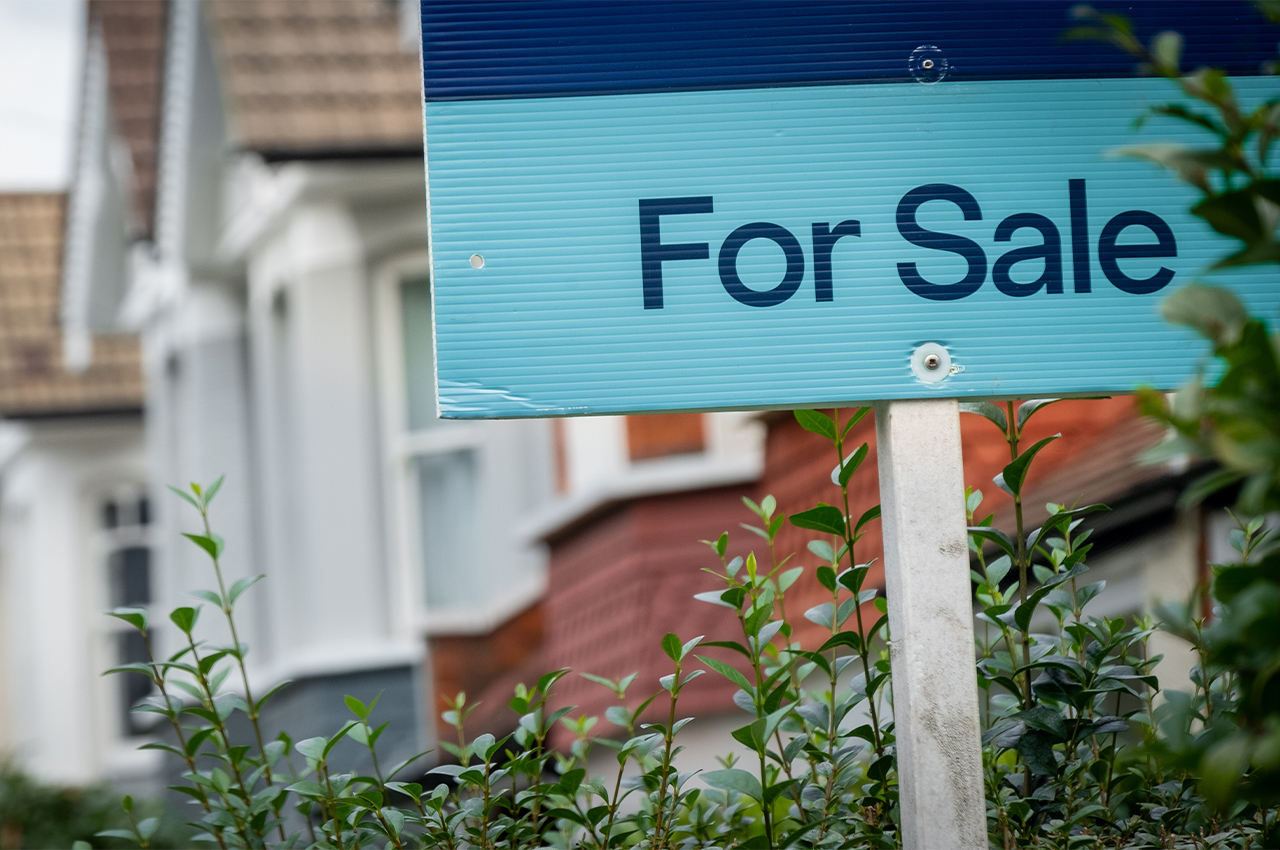Revealed: When is the best time to sell a house?

When is the best time to sell a house? It’s a question that plagues homeowners of every description. Many property experts have analysed data and trends over the years and have come out with averages for a variety of things including the number of days it takes to sell a house.
If you are debating selling your home, then it makes sense to know when these trends occur each year in the property market so that you can use them to your advantage. However, each area and neighbourhood varies when it comes to selling your home and, more often than not, it’s about selling a property at the right time for you, instead of waiting around.
If you’ve got the luxury of choosing when to sell your house, then you have come to the right place! Here is the definitive guide to navigating the tricky nuances of the real estate market as you prepare to put your place up for sale.
What time of year is the best time to sell your house?
PSA: When we’re ask “when is the best time to sell a house?” we’re talking about the months when properties sell the quickest, not the most properties! The worst times of the year are when your property will be likely to sit on the market for longer.
If a property stays on the market for an extended period, you run the risk that potential buyers may assume something wrong with the property. As a result, you are less likely to get a good price as buyers will expect to be able to negotiate the price down.
Best and worst times to sell your house
Most property experts will advise that spring is the best time of year to sell a house. Winter, according to property experts, is the worst time to sell a house in the UK.
Here is a full breakdown, covering some of the reasons behind these seasonal differences.
New Year
For a lot of homeowners, January can be a good time to put their house on the market. With Christmas out of the way, buyers are now ready to focus on searching for a new property.
There is research out there that suggests properties put on the market in January sell quickly. In fact, on Boxing Day 2021, the market saw a 46% leap in sellers putting their properties up for sale and, with that, a huge spike in the number of views of homes for sale on Rightmove.
However, do note that it is common knowledge that spring is a popular time to sell a house so a lot of potential buyers will wait until spring.
Spring
Spring (February to June) is considered the best time to sell a house quickly. Analysis by The Advisory based on data from Rightmove suggests that March is the best month to start selling your home. The Advisory found that houses put up for sale in March took the fewest days to sell (57 days) to go under offer.
Many families search for a property during the Easter and school holidays as they have the time to consider multiple options in-depth and plan to view properties too. What’s more, if you are selling your house, a lighter evening and good weather can be advantageous. Gardens tend to look better when the flowers are in bloom and the property will benefit from the natural light.
Summer
Summer is not the best time to sell a property. July and August are typically quiet periods in the market as people drift away on holiday. Moving can be a stressful time and a lot of sellers don’t want to think about deals, paperwork and everything that comes with moving home during their time off!
Autumn
This is the second-best time of the year to sell a house. Mid-September to mid-October is great, with summer holidays out of the way and a window to move home before Christmas. The early autumn months can be good to sell, although as winter approaches it can get tougher.
Winter
The worst time to put your house on sale is the start of November; this is because it is before Christmas as you might expect. Based on data from Rightmove, mid-October to mid-November are the slowest periods to sell a house, as properties take on average 79 days to go under offer.
School holidays, family gatherings and Christmas all contribute to this, and it is traditionally the worst time of year to sell. If you are thinking about selling your property close to Christmas it could be worth discussing with your estate agent and seeing if you could wait until after the Christmas period is over.

Supply and demand
Supply and demand can have a huge effect on house prices when selling up. The number of buyers, interest rates, exchange rates, and political and economic confidence can all contribute to the property market and price.
More buyers competing over fewer properties will, of course, increase the value as this will drive them to raise their offer to secure the properties they want. On the other hand, when there are plenty of properties and fewer buyers this will drive the price down as they will have more choice.
When you are selling your property, go to a website like Rightmove and check local estate agents’ listings. This will give you a good idea of how many properties are on the market in that area. You will be able to see how many similar properties there are out there and how long they have been on the market. You might also be able to see if the property has been reduced from the initial asking price.
A saturated market can leave properties on the market for longer periods. However, if you are in a prime residential area, then properties can be within their own “bubble” whereby they will sell super-fast as they are always scarce and demand is high. We’re thinking about locations that are known locally as safer and more affordable areas.
Interest rate changes can affect supply and demand as lower mortgage rates make buying a house more affordable. Higher mortgage rates increase the cost of buying a house so it can slow demand down as people will wait for mortgage rates to decrease.
Property types and when they sell best
According to data from The Advisory, different property types sell better at different times of the year.
Flats
One and two-bed flats tend to sell quickly in January and February as young professionals and couples look to start the year by preparing to move in together with a new home. These types of properties also sell quickly in September, which is down to buyers returning from their holidays and wanting to move in before Christmas.
Family homes
Family homes will sell the slowest in the summer months because families are on school holidays from July to August and finding a new house is often put on hold. A lot of families find that buying a house with the kids by their side is an added stress, so buyers tend to want to work on buying a property during term time.
Bungalows
Property types such as bungalows will sell the fastest during the warmer months of June to September as older people in the market look to downsize.
The best day to put your house on the market
The best day to put your house on the market will change every year as it will depend on upcoming events and holidays. However, there have been numerous studies to determine the best day to list a property and they always come up with a different date. It’s advisable not to list a property before a bank holiday or large cultural event rather than not choose a specific day.
Other considerations
If there are large construction works ongoing next to your property such as building flats, major renovations, phone masts and the like, it is advisable to sell your property once the construction is completed as it can be off-putting. If the work hasn’t started yet, then you can try to get it gone before it begins!
Moving house can be more expensive at different times of the year too. In fact, it tends to work hand in hand with the most popular times of the year to move as this is when the moving companies are busiest. Be sure to be prepared and get your moving checklist, address checklist and everything else arranged as the further in advance you book the cheaper it will be for you.
Recap: when is the best time to sell your house
To recap, the answer to our main question – when is it the best time to sell a house? – depends on a mixture of factors, including seasonal trends, local market dynamics, and personal circumstances.
While spring, particularly March, is generally regarded as the prime time to attract quick buyers, each property type and location may have its own unique selling period. Family homes may face a slower market in the summer due to school holidays, while flats and bungalows may see heightened demand during specific months.
Understanding supply and demand dynamics, interest rate fluctuations, and keeping an eye on local market listings can further inform your decision. The timing of listing your property can also play a crucial role, with considerations such as avoiding major holidays and cultural events.
Ultimately, the decision of when to sell your house should align with your individual goals and circumstances. By staying informed and adapting to the ever-changing real estate landscape, you can strategically position your property for a successful and timely sale that works for you.
